
June 18, 12:00 pm - 12:45 pm
Climate Change and Respiratory Health: From Epidemiology to Intervention
-
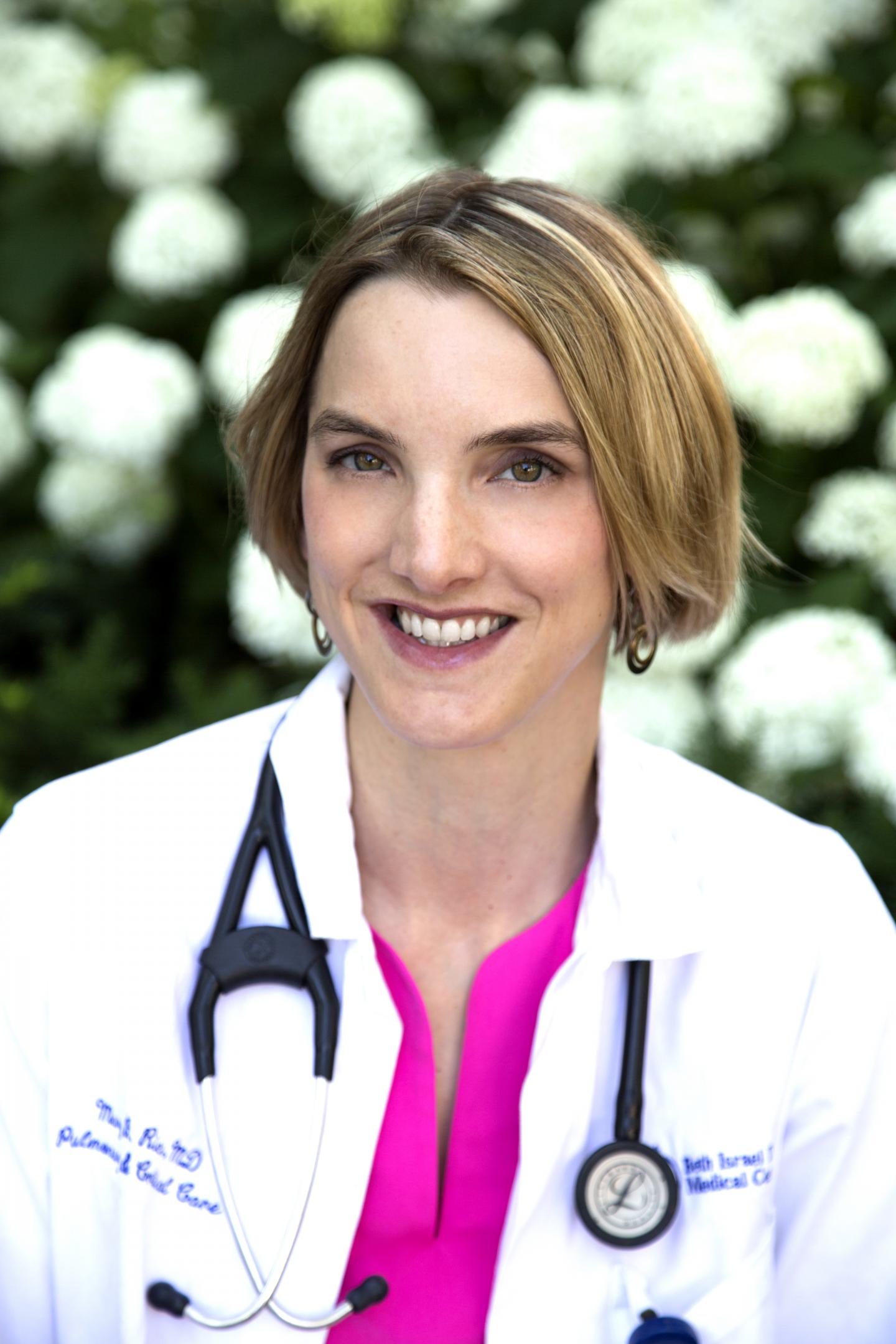 Mary B. Rice
Mary B. Rice -
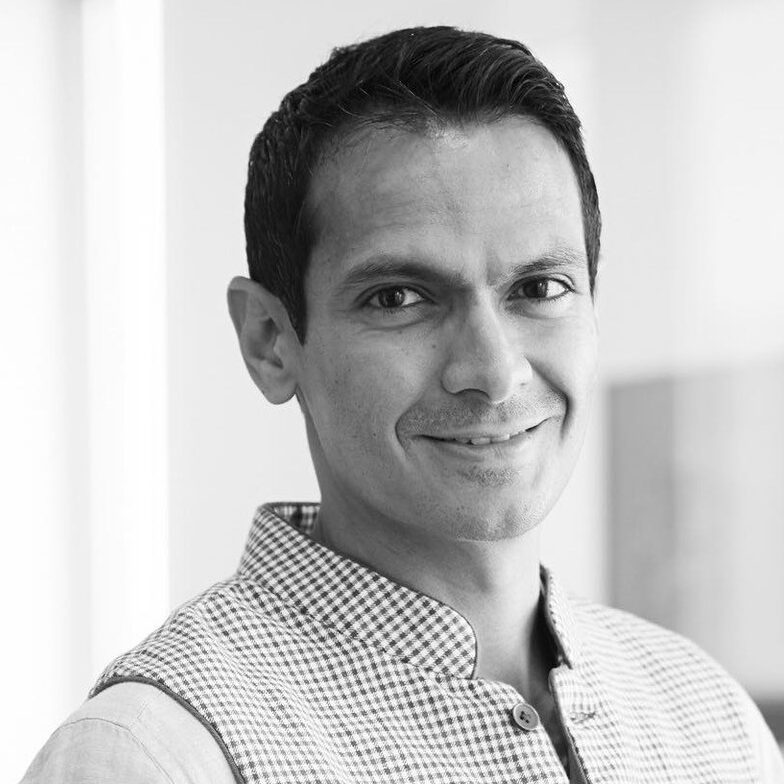 Satchit Balsari
Satchit Balsari -
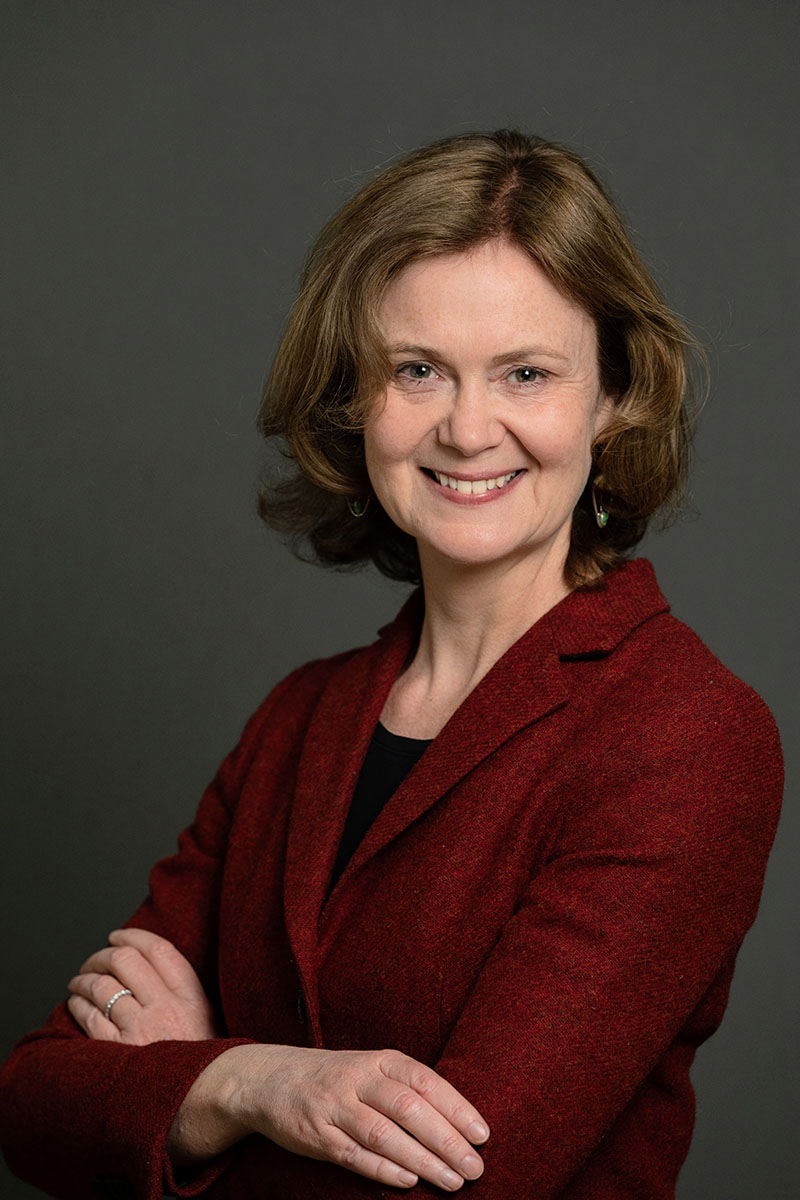 Louise C. Ivers
Louise C. Ivers
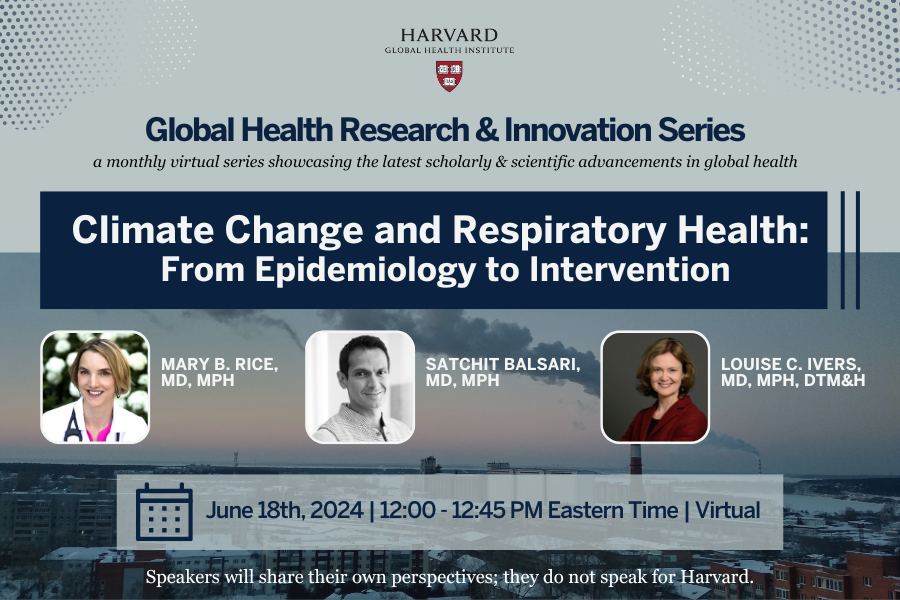
Dr. Mary B. Rice will discuss research on the respiratory health effects of climate change and opportunities for physicians and scientists to intervene at the clinical and policy level.
Dr. Satchit Balsari will moderate the session, with an introduction by Dr. Louise C. Ivers.
This event is free and open to the public.
About the Speakers

Mary B. Rice, MD, MPH, Director of the BIDMC Institute for Lung Health, Associate Professor of Medicine at Harvard Medical School
Dr. Rice’s research focuses on preventable causes of chronic lung disease in children and adults, including environmental exposures such as air pollution, climate, aeroallergens and microbes. Dr. Rice is the Director of the BIDMC Institute for Lung Health, a multi-disciplinary respiratory research program that applies advanced statistical and sampling methodologies in clinical populations with chronic lung disease and multiple U.S.-based prospective cohort studies of children and adults. A core mission is to identify preventable causes of chronic lung disease, and to translate research findings into patient care and health policies that improve lung health. Dr. Rice’s research is funded by the National Institutes of Health.
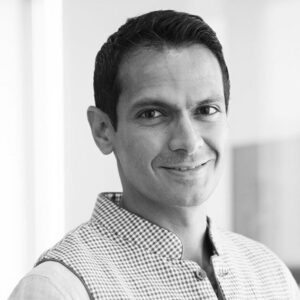
Satchit Balsari, MD, MPH, Associate Professor, Emergency Medicine, Harvard Medical School and Beth Israel Deaconess Medical Center; Department of Global Health and Population, Harvard T.H. Chan School of Public Health
Dr. Satchit Balsari is Associate Professor in Emergency Medicine at Harvard Medical School and Beth Israel Deaconess Medical Center; and in the Department of Global Health and Population at the Harvard T.H. Chan School of Public Health. Dr. Balsari’s research and teaching are focused on complex humanitarian emergencies and digital health implementation science in resource-poor settings. He has worked with populations affected by disaster, war and the COVID-19 pandemic in Iraq, South Sudan, Jordan, Haiti, Puerto Rico and across South Asia. In the most vulnerable communities in the world, his team has leveraged cutting-edge digital tools and citizen science to advance public health planning, advocacy, and response.
The Balsari Lab collaborates directly with populations in distress, humanitarian response agencies, civil society organizations, governments, and international agencies, to reduce the information asymmetry that threatens to exclude the poor and disadvantaged from decisions that will impact their lives. Dr. Balsari co-directs CrisisReady.io, a research-response platform that builds data-driven decision tools for local communities and response agencies affected by disasters globally. Dr. Balsari is founding director of the tri-institute Climate and Human Health fellowship at Harvard, leads the climate platform at the Lakshmi Mittal and Family South Asia Institute, and is co-investigator on the Salata Institute’s inaugural interfaculty cluster grant on Climate Change Adaptation in South Asia. He recently has curated an exhibition, Hum Sab Ek, which is based on his research on the impact of the COVID-19 pandemic on the 2.9 million-strong Self Employed Women’s Association (SEWA), and its members’ response to it.
Prior signature initiatives include EMcounter (a customizable, portable digital surveillance tool, the latest iteration of which was used at the world’s largest mass gathering, the Kumbh Mela in India) and Voices, a crowd-sourced, online disaster response analysis tool. In 2018, in collaboration with Professor Caroline Buckee (Epidemiology), he co-led the Hurricane Maria Mortality Study.

Louise C. Ivers, MD, MPH, DTM&H, Faculty Director, Harvard Global Health Institute
Dr. Louise C. Ivers, MD, MPH, DTM&H is the Faculty Director of the Harvard Global Health Institute and the Executive Director of the Massachusetts General Hospital (MGH) Center for Global Health. Dr. Ivers is also the David Bangsberg Endowed Chair in Global Health Equity at MGH and a Professor of Medicine and Professor of Global Health and Social Medicine at Harvard Medical School. Dr. Ivers has spent her career providing care to the rural and urban poor and engaging in patient-oriented investigation that offer solutions to barriers to healthcare. She works on the design, implementation, and evaluation of large-scale public health programs in resource-limited settings with the goal of achieving health equity. She has worked on healthcare delivery in India, Southeast Asia, and Africa. From 2003-2017, Dr. Ivers served in various leadership roles for Partners in Health, including Clinical Director, Chief of mission, and Director of strategic implementation. In addition to expanding access to healthcare for the poor, Dr. Ivers has contributed to published research articles on HIV/AIDS, food insecurity, and cholera treatment and prevention and is involved in global policy and advocacy.
About the Global Health Research and Innovation Speaker Series
The Harvard Global Health Institute’s Global Health Research and Innovation Speaker Series showcases the latest scholarly and scientific advancements in global health across Harvard and beyond, to make cutting-edge research accessible to a diverse global audience, and to spark innovative solutions in the pursuit of health equity and improved health outcomes worldwide. The public series takes place virtually on the second Tuesday of each month from 12:00 to 12:45 pm ET. Each session will include a presentation by a featured speaker showcasing their innovative research in global health, followed by a moderated Q&A.
Speakers will share their own perspectives; they do not speak for Harvard.


